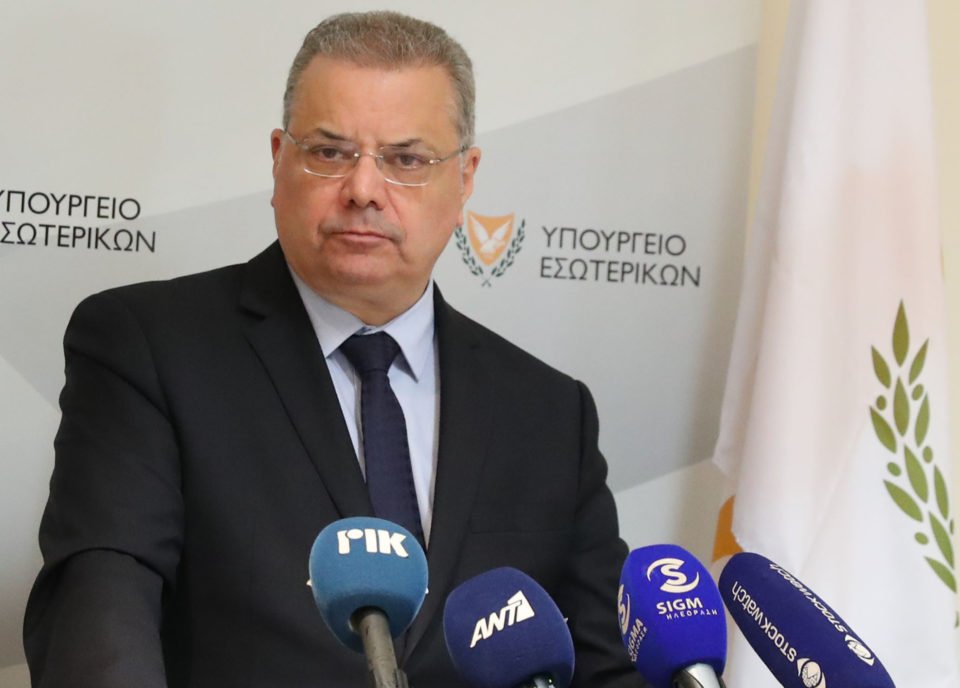Nicosia hopes the EU can soon agree a new common migration and asylum pact, relieving the island of some of the pressure from migrant flows, Interior Minister Nicos Nouris said on Tuesday.
Nouris said Cyprus will be putting forth its own proposals at the upcoming EU Home Affairs Council taking place in Luxembourg.
The Cypriot proposals draw on the principles of solidarity and fair allocation, he added.
Noting that the debate within the EU over a common migration and asylum policy has been ongoing for over a year, Nouris said Cyprus unreservedly supports a legal framework “that will help manage the huge problem that our country, and others, face.”
The EU currently lacks a single migration policy. Instead, the bloc’s policy is a mishmash of measures on border control, return, asylum procedures, and development projects.
According to Nouris, one of the strongest arguments that Mediterranean countries will use, is the 2015 migration crisis “when in the absence of a coherent legal framework, the asylum systems of Greece and Italy literally collapsed.
“We do not want a repeat of that, which is why we are discussing with our EU partners the possibility of reaching a new pact.”
Due to the fact that Cyprus is a small island, and not part of the Schengen zone, it is having difficulty returning non-EU nationals to their countries of origin.
Along with Greece, Spain, Malta and Italy, Cyprus is a frontline country bearing the brunt of migration flows.
Unfortunately, Nouris noted, a number of other EU member-states have a different conception of solidarity than do the so-called Med5 countries.
Nicosia will go to the EU Home Affairs Council with three main proposals in hand. The first relates to control of the EU’s external borders, and the need to monitor the Green Line – not a hard border – in Cyprus.
Nouris said that Turkey has “instrumentalised” the migration issue, and on a daily basis it diverts irregular migrants from Turkish shores to the north of the island; the migrants subsequently enter the Republic through the Green Line.
Secondly, Cyprus proposes that the European Commission undertake an initiative for a common agreement with a number of so-called ‘safe countries’ from where migrants originate.
Thirdly, that the EU “should activate those mechanisms and organisations operating inside the EU, so as to maximise the number of returns to non-EU countries, in this way decongesting member-states that are on the frontline.”
In remarks of his own, Akel MP Giorgos Kokoumas cautioned the government not to acquiesce to a re-jigged Dublin Regulation at the Home Affairs Council.
The Dublin Regulation (sometimes referred to as Dublin III) is European Union law. It determines which country is responsible for examining an asylum application – normally the country where the asylum seeker first entered Europe.
According to Koukoumas, this arrangement effectively means that seekers of international protection end up being concentrated in Mediterranean countries.
The MP harangued the Cypriot government for making the mistake of agreeing to the Dublin Regulation back in 2013. He said Cyprus must now insist on a system where migrants are distributed to all EU-member states, each to their own capability.







Click here to change your cookie preferences